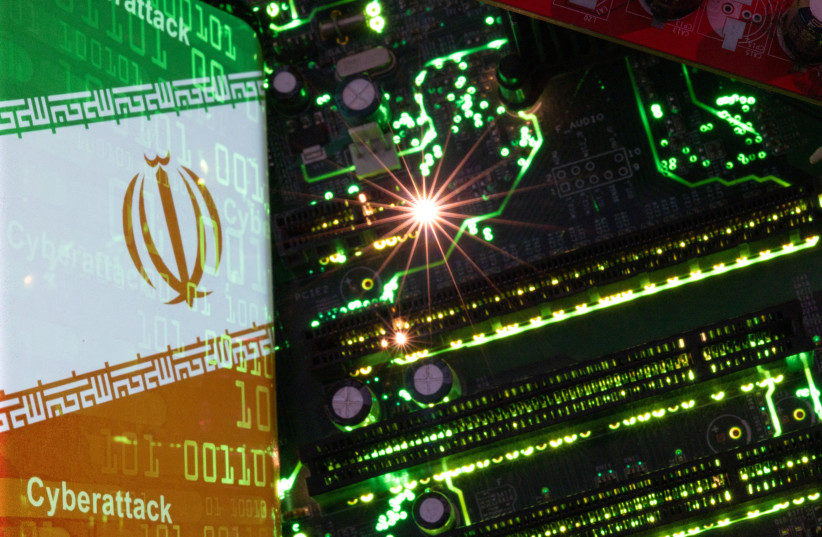An Iranian influence network used everything from matchmaking to deep fakes to try and divide Israeli society since 2021, the FakeReporter watchdog and Haaretz reported on Tuesday.
The Iranian network worked to pit different groups and sectors against each other by publishing a variety of content meant to incite controversy from multiple sides.
The operatives acquired Israeli and American phone numbers, created made-up characters, made fake accounts posing as well-known figures, and established fictitious social and political movements on WhatsApp, Telegram, Facebook, and Instagram.
According to the report, from 2021-2022, the network focused on publishing anti-LGBTQ+ and anti-haredi content, posing as well-known rabbis, and establishing fake social movements.
The network expanded its operations in the past year, focusing on the controversy surrounding the judicial reform. The operators of the network contacted activists directly and attempted to recruit them to share the network's content online and through printed media.

In one instance, the influence network opened a dating group called "Two Hearts," with hundreds of Israelis subsequently joining the group, but after a certain amount of time, the group administrators began mixing political messages into the dating-themed messages.
Iranian influence network spread conspiracy theories about traitors after October 7
Once the Israel-Hamas War broke out on October 7, the network began spreading conspiracy theories about traitors in Israel, as well as posts about the hostages.
The Iranian operatives even entered group chats of activists and social movements, contacting activists from the protests pushing for the release of the hostages.
"We are seeing a significant development in the complexity of foreign influence operations in Israel, and the choice of the term 'Second Israel' shows a high familiarity with the news discourse, the internal discourse on social media, and with opinion leaders in the various camps," explained a social media researcher at FakeReporter who was involved in the investigation to Haaretz.
"Nevertheless, we also recognize many weaknesses in the foreign networks: the original content they produce and the language they use show that they still have a long way to go to deeply understand Israeli society and the cultural and social contexts. If the state does not find a way to fight them, the day will come when it will already be much more difficult to identify them."
FakeReporter updated later on Tuesday that additional operations by the Iranian influence network had been found after the publication of the investigation and asked that anyone who spots phone numbers belonging to the influence network in groups to contact them.
FakeReporter has reported on similar Iranian influence networks in recent years. During Operation Guardian of the Walls in 2021, such a network ran a campaign on multiple social media platforms targeting far-right and haredi Jews with disinformation.
Earlier this year, a bot network suspected of being run by Iran published the personal information of Israeli police officers and impersonated the organizers of the anti-judicial reform protest movement was detected by the watchdog as well.
